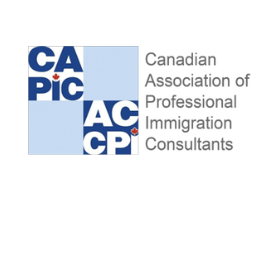Before Canadian employers can hire a Temporary Foreign Worker, they will need Labour Market Impact Assessment (LMIA) from ESDC (Employment and Social Development Canada), which is issued if ESDC is satisfied that there is no Canadian citizen or permanent resident available to do the job. When the LMIA is granted, the Canadian employer needs to provide a copy of the LMIA approval letter, and a detailed job offer letter to the foreign worker. The foreign worker will need those documents to be able to apply for a work permit. Finally, the foreign worker can submit an application for a work permit to IRCC. Foreign workers may need to obtain a Temporary Resident Visa (TRV) to travel to Canada, which depends upon the country of citizenship.
LMIA processing times are unpredictable; it may take from a couple of weeks to a few months.
These kind of work permits are employer specific (‘closed’) and are granted for a specific job in Canada. Meaning, a foreign worker may only work for the employer specified on the work permit. Furthermore, if the foreign worker wants to work for a different employer and does not yet have permanent resident status, the foreign worker must apply for and receive a new work permit prior to changing employers or their position in Canada and their new employer needs to obtain an LMIA for the job position.
Once in Canada on a temporary work permit, a foreign worker may qualify for Canadian permanent residence under the following:
NOTE: For Quebec, If the Canadian employer is hiring for a position located in the province of Quebec, the foreign worker will need to obtain a Certificat d’acceptation du Québec (CAQ) in order to work temporarily in Quebec. The CAQ application will have to be submitted to Quebec’s Ministère de l’Immigration, Francisation et de l’Intégration (MIFI) at the same time as the LMIA is submitted to ESDC.
Labour Market Impact Assessment (LMIA) Based Work Permit Eligibility and Requirements
Firstly, a Canadian employer needs to be eligible to obtain LMIA and that will be determined by a stream. If a Canadian employer applies for LMIA to support permanent residence, there is a requirement to be in business for at least 1 year before application. For all other types, Canadian employer needs to meet the following requirements for LMIA: –
- The business needs to be legit
- The need for a temporary foreign worker needs to be genuine
- The business needs to provide goods or services
- The business must be able to pay a salary to the temporary foreign worker
- In the 12-months period before applying for LMIA the business must not lay-off employees
Secondly, a temporary foreign worker needs to be eligible to receive a work permit based on the issued LMIA. An employer-specific (‘closed) work permit lets a temporary foreign worker to work in Canada according to the conditions on their work permit, as follows: –
- The name of the specific employer a temporary foreign worker can work for
- The indication of the length of the work
- The location of the work (if applicable)
The Department of Employment and Social Development publishes Positive LMIA Employers list every year.
After the eligibility requirements are confirmed and submitted, the decision on the Temporary Foreign Worker’s application is made. A work permit is always temporary, but it can often be extended from inside Canada in the same sequence.
Before submitting a work permit application, a temporary foreign worker must obtain a copy of approved LMIA letter from the employer and a job offer letter.
Labour Market Impact Assessment (LMIA) Based Work Permit Process
The LMIA streams are as follows:
- Low-Wage and High-Wage
- In-home Caregivers
- Supporting PR Application
- Global Talent Stream
- Dual Intent
- Agricultural Workers and Seasonal Agricultural Workers
In processing LMIA each type specifies requirements for employers’ eligibility, job advertising, forms, supporting documents, processing fee, and timeline.
The ESDC uses 07 factors to assess each LMIA request and evaluates whether Canadian workers (citizens or permanent residents) are available to do the job that is offered to a foreign worker. If there are not any available or do not meet the requirements, only then a confirmation letter to hire a temporary foreign worker to fill a labour or skills shortage will be issued.
Temporary foreign workers with positive LMIA may receive from 50 to 200 additional points in Express Entry program, which can help them immigrate to Canada.
When employing a temporary foreign worker, it must have a positive effect on the Canadian labour market, so the LMIA can be issued.
An LMIA confirmation letter might not be required for certain jobs. Temporary foreign workers can get an LMIA-exempt work permit.
Labour Market Impact Assessment (LMIA) Based Work Permit Supporting Documents
Job advertising to find Canadians or permanent residents for work are essential in most LMIA applications. An employer is required to advertise a job:
- In at least 03 sources (for high-wage positions) and 05 sources (for low-wage positions)
- Job posting must run for 04 weeks, and
- An LMIA application should be submitted within 03 months from the beginning of the advertisement
The employer would also need the following documents for LMIA application:
- Business legitimacy documentation
- Proof of providing a good or service (e.g., PD7A)
- Proof of recruitment
- Other documents (depends on the LMIA stream)
- Provincial based documents (license, registration…)
Above all documents submitted and later on approved LMIA, the most important thing for the employer is, to be able to pay the salary to a foreign worker.
The ESDC will verify if the employer meets the LMIA requirements through the submitted supporting documents.
Every LMIA stream has its own forms which are being updated every few months. Note the application will be returned as incomplete if wrong forms are submitted.










